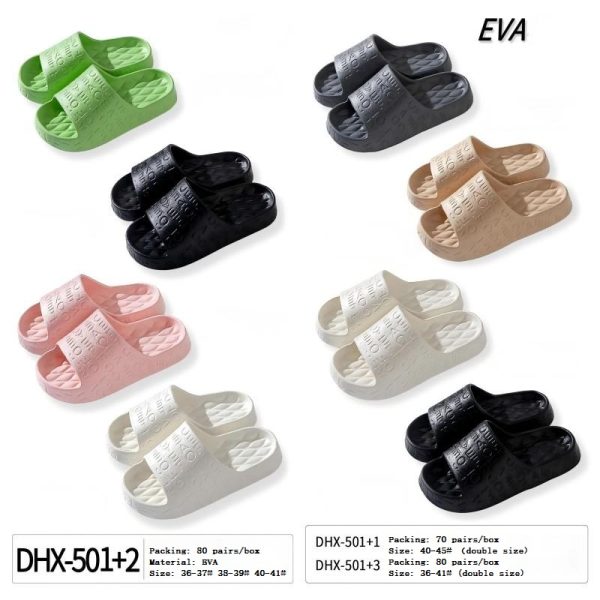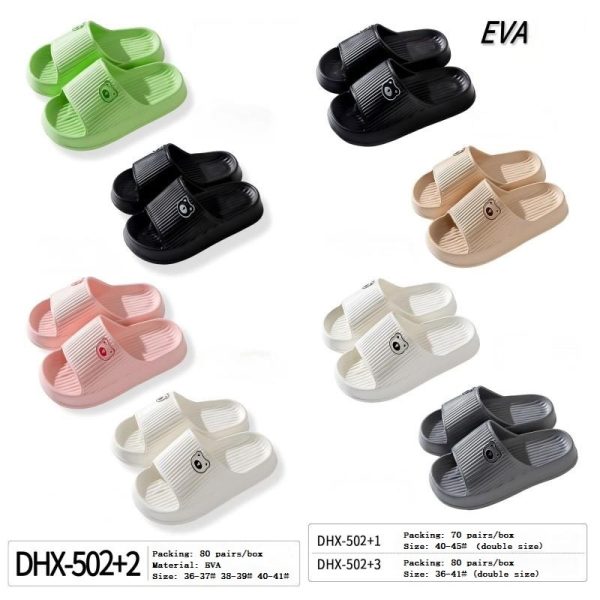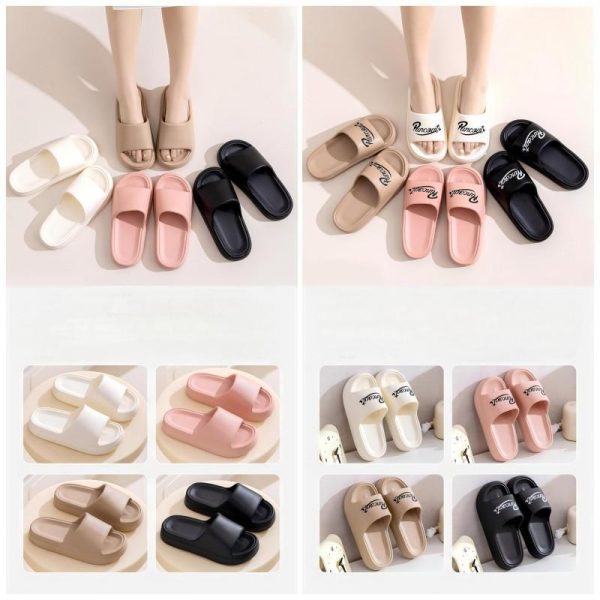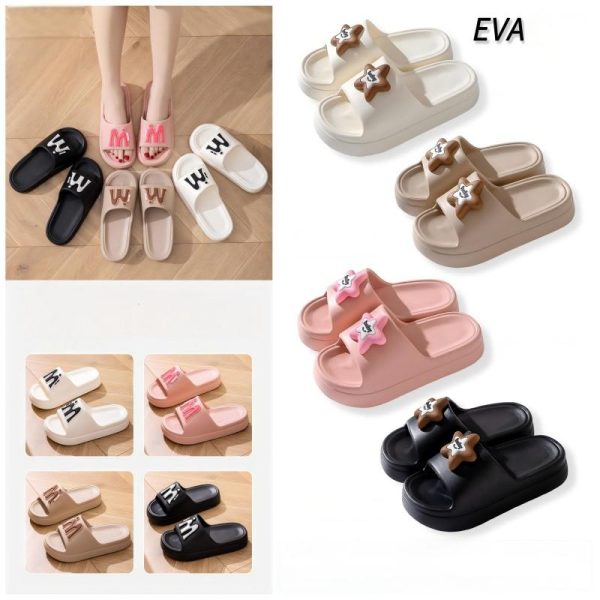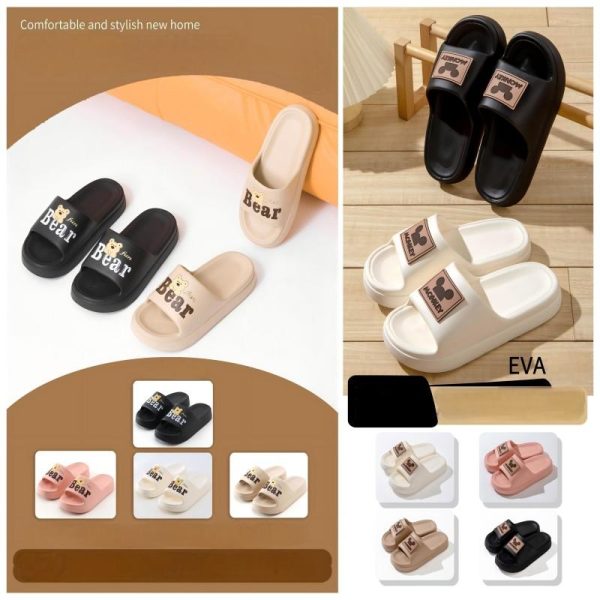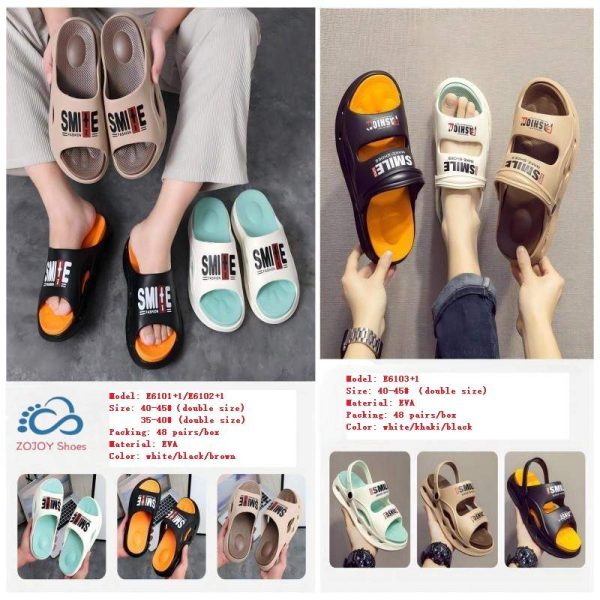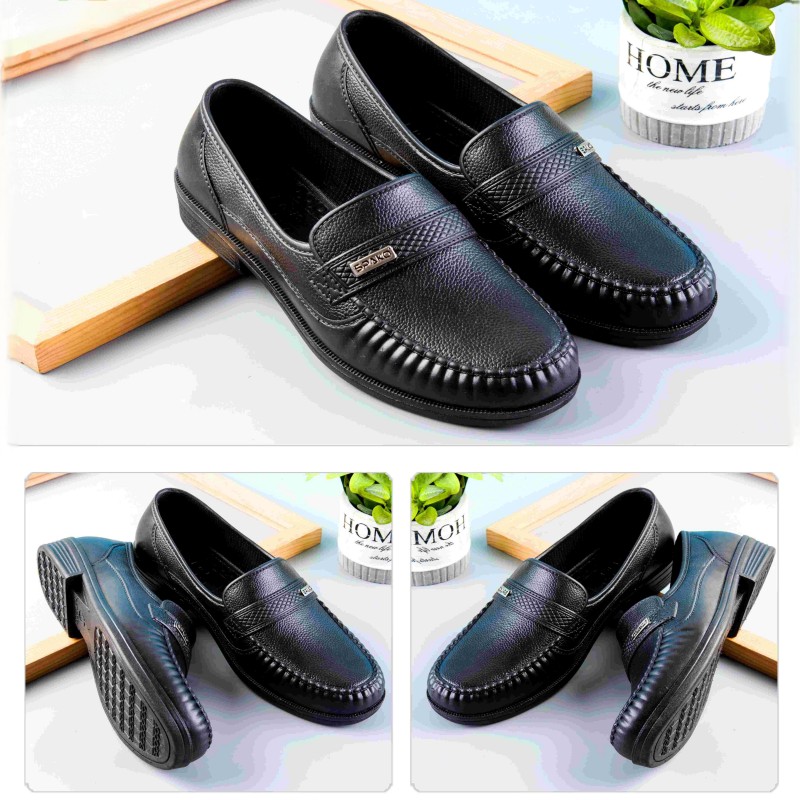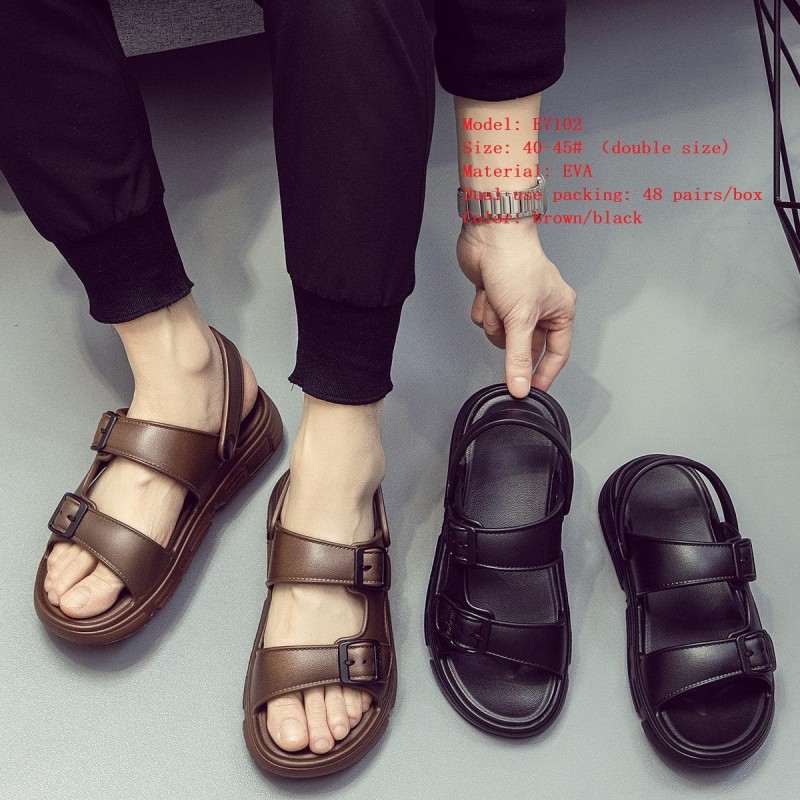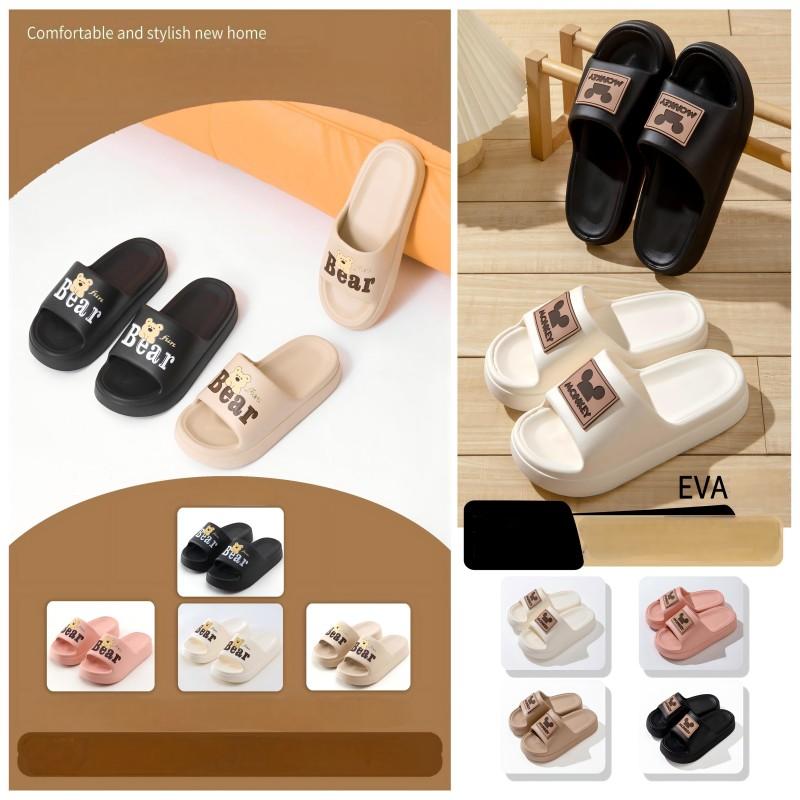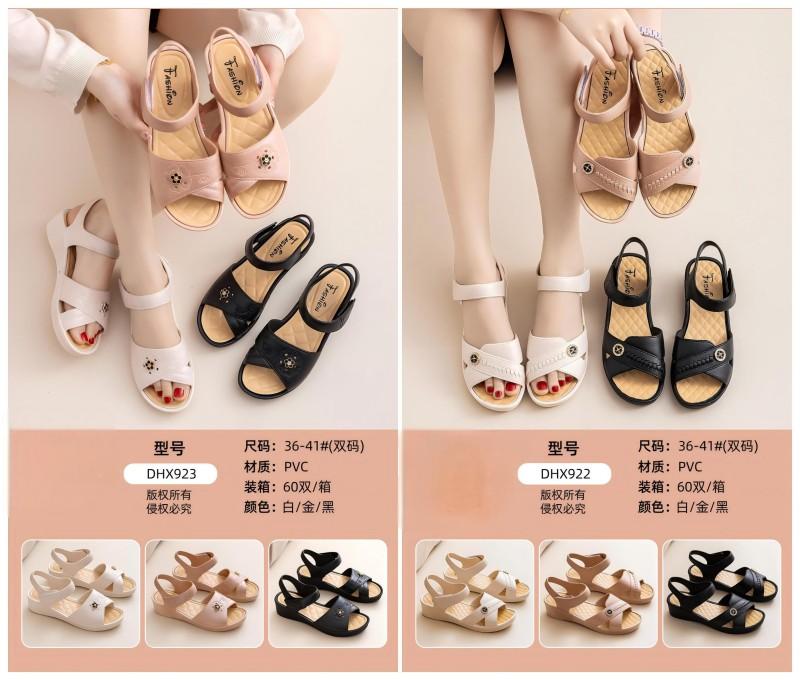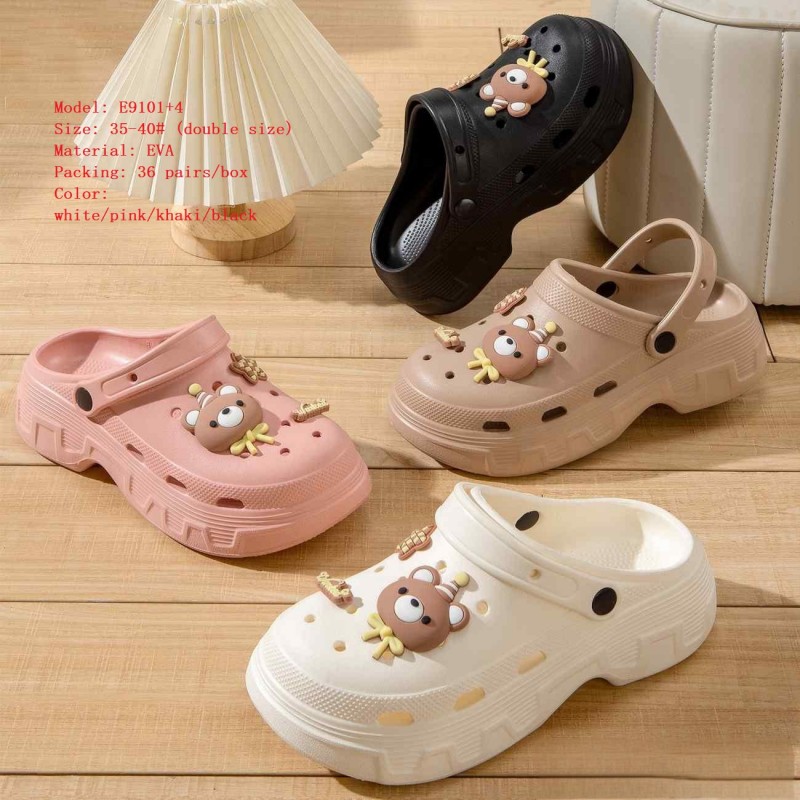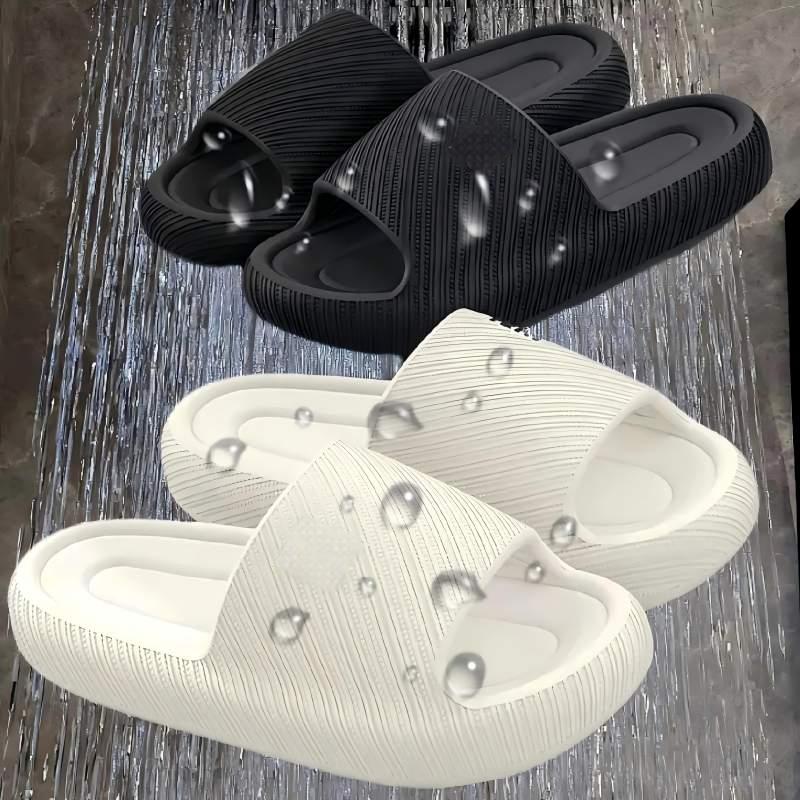-
No. 34 Xiayaopo, Bopu, Wuchuan City
Eco-Friendly EVA Slippers – Breathable Unisex Home Footwear
Feel good. Step light.
Our Eco-Friendly EVA Slippers are soft, light, and good for Earth. They keep your feet happy all day.
Why You Will Love These Slippers
✅ Soft EVA material – Like walking on clouds!
✅ Good for Earth – Made from recycled EVA (no bad chemicals).
✅ Fits men and women – One size for all!
✅ No slipping – Strong grip soles keep you safe.
✅ Easy to clean – Just rinse with water!
“So comfy! I wear them all day at home.” – Happy Customer
Perfect For
🏠 Home – Great for lazy days.
✈️ Travel – Pack light, stay cozy.
🧘 Yoga – Stay balanced.
🛌 Hotels – Better than plastic slippers.
What Makes Them Special?
| Feature | Benefit |
|---|---|
| Breathable | No sweaty feet! |
| Lightweight | Easy to walk in. |
| Washable | Stays fresh. |
| Non-slip | Safe on wet floors. |
Eco-Friendly Details
🌱 100% Recycled EVA – Helps reduce waste.
🌍 No BPA or Phthalates – Safe for you and Earth.
📦 Plastic-Free Box – Even the packaging is green!
More Comfy Shoes
- Need sandals? Try our EVA Beach Sandals.
- For kids? See Kids’ Lightweight Slippers.
- For moms? Check Cozy Mom Slippers.
Buy Now – Feel the Difference!
🔁 Easy returns – No stress!
Walk soft. Live green. 😊
10 things to note when purchasing products from China
Help Center
Have a query? Please check this question and answers
Composition difference:
- PVC (polyvinyl chloride) is polymerized from vinyl chloride monomers, and plasticizers (such as phthalates) and foaming agents are required to improve softness.
- EVA (ethylene-vinyl acetate copolymer) is copolymerized from ethylene and vinyl acetate, and has high elasticity without the need for additional plasticizers.
Characteristic comparison:
- PVC is relatively hard and relies on plasticizers to adjust its softness;
- EVA naturally has rubber-like elasticity, remains flexible at low temperatures (can withstand -76°C), and is anti-aging and non-toxic.
Advantages of EVA:
- Lightweight (density about 0.945 g/cm³), excellent shock absorption, suitable for long-term wear;
- Closed-cell structure is waterproof and moisture-proof, and resistant to chemical corrosion.
PVC limitations:
- Poor air permeability, easy to breed bacteria due to sweat;
- Easy to deform at high temperature, easy to crack at low temperature.
- PVC process is complex: It needs to go through multiple processes such as kneading, plasticizing, pulling, punching, molding and foaming, and strict temperature control is required (such as injection temperature 140–175℃).
- EVA is more efficient: The mainstream process is one-time molding (granulation → mold → foaming), which reduces waste and has a short cycle. For example, the one-time injection process is suitable for mass production and has lower costs.
- In order to reduce costs, some manufacturers use phthalate plasticizers, which are easy to migrate to the human body. According to the random inspection in 2025, 50% of PVC children’s sandals exceeded the standard (the highest exceeded the national standard by 509 times), which may interfere with endocrine and cause precocious puberty in children.
- Solution: Choose products that meet the national standard GB 30585-2024 (phthalates <0.1%), or give priority to EVA materials (no plasticizer required).
- EVA: Natural anti-slip performance is good, but anti-slip pattern design is still required when the surface is too smooth.
- PVC: Hard and brittle materials have poor anti-slip performance and need to rely on the sole pattern to improve grip.
- Purchase advice: Avoid styles without anti-slip patterns, especially in bathroom scenes.
- EVA: Biodegradable and low production pollution.
- PVC: Harmful gases such as hydrogen chloride are released during the production process, and it is difficult to degrade after being discarded.
- Trend: The EU and other markets gradually restrict PVC shoe materials, and EVA has become the mainstream environmentally friendly alternative.
Scenarios for choosing PVC:
- Short-term use, low-cost needs (such as disposable slippers in hotels);
Scenarios for choosing EVA:
- Children’s shoes (high safety requirements);
- Sports/outdoor slippers (need shock absorption and weather resistance);
- Environmentally friendly products (degradable needs).
Quality inspection points:
- Look for GB 30585-2024 standard;
- Avoid products with strong odor or too bright colors (may contain excessive heavy metals).

